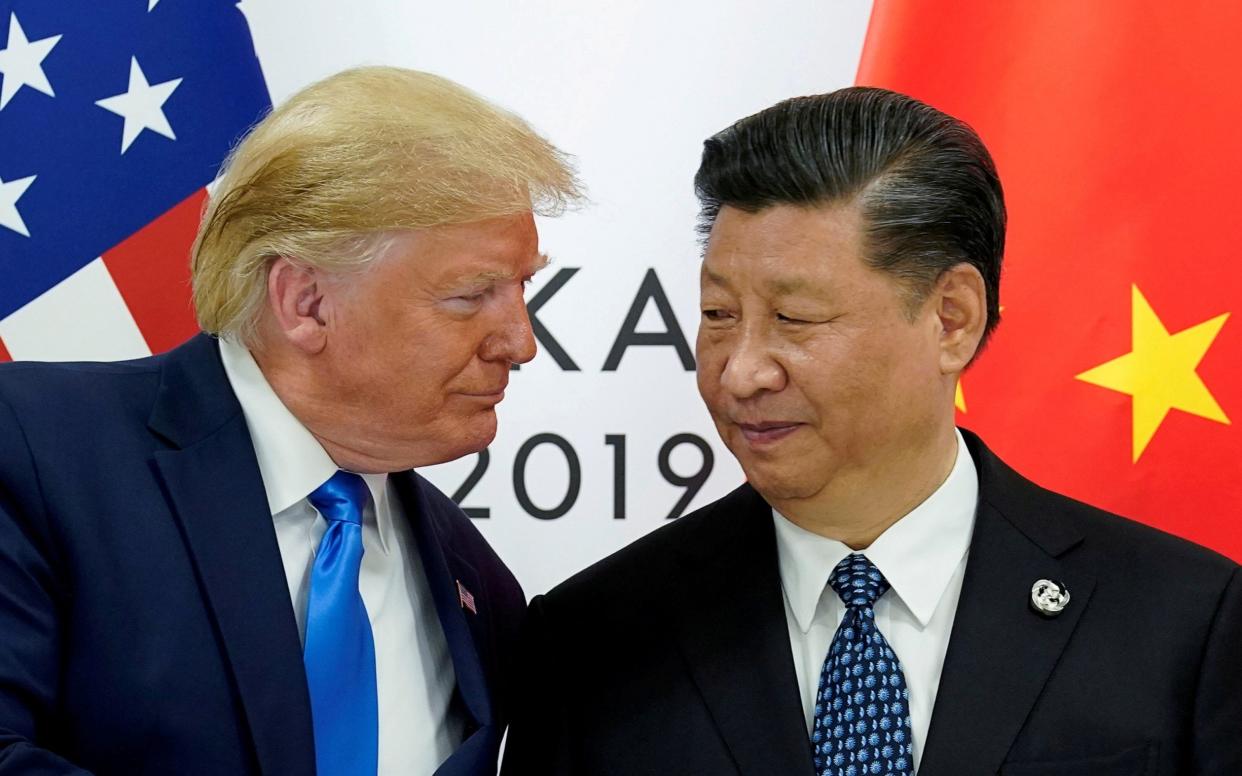WHO chief promises to investigate virus response at 'appropriate' time as China gives $2bn to relief effort

The World Health Organization has backed calls for an independent inquiry into its handling of the pandemic as China pledged $2billion for efforts to contain the coronavirus in developing countries and the US accused the body of presiding over a costly failure.
Speaking at the World Health Assembly - the decision-making body of the WHO - director general Dr Tedros Adhanom Ghebreyesus said he welcomed a proposal by more than 120 countries - tabled by the European Union and Australia but not China - for a “stepwise process of impartial, independent and comprehensive evaluation” of its response to the pandemic.
Dr Tedros said he would launch “an independent evaluation at the earliest appropriate moment“.
However, the US Secretary of Health and Human Services, Alex Azar, told the assembly that the pandemic had "spun out of control" in great part due to a costly "failure" by the WHO.
"There was a failure by this organisation to obtain the information that the world needed, and that failure cost many lives," he said.
An early report into WHO’s handling of the crisis by its independent oversight body said that the organisation had “demonstrated leadership” and that its performance should be reviewed but not during the “heat of the response”.
The report also said the WHO would need an estimated $1.7 billion to the end of the year, leaving it with a funding gap of $1.3 billion.
Chinese president Xi Jinping told the assembly he would back a “comprehensive review” of the pandemic after it had been brought under control.
Answering critics who said the country covered up the outbreak when it first emerged in Wuhan, central China at the end of last year Mr Xi insisted his country had acted with “openness, transparency and responsibility”, providing information to WHO and relevant countries in a ”timely fashion”.
He also tried to smooth over criticism by announcing $2 billion to support virus response efforts, calling for continued research into the source of the virus, pledging to make vaccines a global public good when possible, and encouraging information-sharing on best practices.
While it is unclear whether the Chinese pledge would be channelled directly to WHO such a significant sum cannot be overlooked, particularly given the shortfall in funding of both the WHO and the coronavirus response.
The US is by far the WHO’s biggest donor, giving $400m in 2019 - however, president Donald Trump has threatened to cut off funding, accusing the organisation of mismanaging the response to the pandemic and of bias towards China. Although in recent days he has appeared to roll back on that.
Amanda Glassman, executive director of the Center for Global Development at Georgetown University in the US, said: “My main question is, how will this money be channeled and will it be through the WHO. If yes, that would be interesting since the US has stated its intention to match China’s contribution to the WHO.”
Mr Xi’s address was aimed at heading off critics, but what he said was very different from what Beijing had messaged, largely resisting a probe. Chinese state media has claimed nations are insisting on an investigation for political reasons, going so far as to blame the US for using China as a scapegoat for its own poor handling of the outbreak.
In his address to the assembly - held virtually and with world leaders dialling in on sometimes shaky video links - Dr Tedros answered critics who said the organisation had been slow to respond at the beginning of the outbreak.
“WHO sounded the alarm early, and we sounded it often. We notified countries, issued guidance for health workers within 10 days, and declared a global health emergency — our highest level of alert — on the 30 of January. At the time, there were less than 100 cases and no deaths outside China.
He said that every country and organisation “must examine its response and learn from its experience”, he said.
The WHO is also hoping to hammer out a global agreement laying out how to fairly and affordably manufacture and distribute drugs and vaccines.
The EU has proposed the creation of a voluntary patent pool, which would mean that pharmaceutical companies should surrender the patents which give them monopoly over new vaccines and treatments. All countries would then be able to manufacture and purchase affordable versions.

